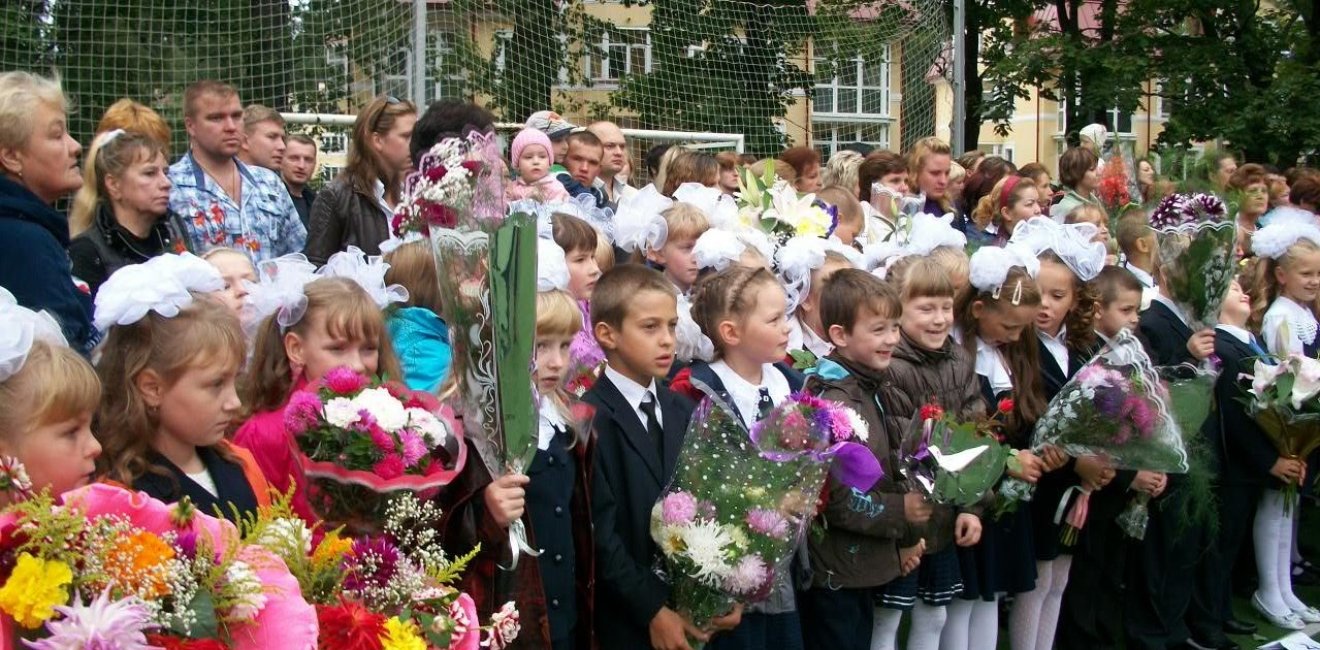
A blog of the Kennan Institute
Parents who think names like Princess Daniella, Tsar, and BOCH rVF 260602 have a nice ring to them are out of luck. A new law prohibits giving children names that include numbers, combinations of numbers and letters, symbols, swear words, ranks, or last names with more than two hyphenated words. The grounds: these kinds of names violate the rights of children.
The proposal to restrict allowable names was introduced by Senator Valentina Petrenko, who claims that “in some cases, the freedom of parental discretion leads to abuse of parental rights.” With President Vladimir Putin signing the bill into law on May 1, children are safe at last from the abuse of parents who think it’s clever to give their offspring names like Angel, Air Traffic Controller, or Lettuce Salad.
Limiting what children can be named with the ostensible goal of protecting them—and therefore the future—occurs in the context of the rise of traditional values in Russian discourse and law. Traditional values are of key importance in a country that is struggling demographically (the population is estimated to decline by over 20 percent by 2050). Promoting those values includes rewarding large families—the Order of Parental Glory was established in 2008 to honor parents of seven or more children for their prolific contribution to the state, for instance.
And now those parents will have fewer names to choose from for their flocks of good little Russian citizens.
He (or She) Who Must Not Be Named
Petrenko, a prominent voice for Russian family values, listed a number of offending names to prove the need for the law. It included Khristamrirados, Nikolai-Nikita-Nil, Dolphin, Yaroslav-Lutobor, Ray-of-Happiness Summerset Ocean, Polina-Polina, Princess Daniella, Zarya-Zaryanitsa, Alyosha-Caprina, Ocean, and Sofia-Solnyshko. Other unusual Russian names include Galavictoria, Simply Hero, North, Lettuce Salad, Air Traffic Controller, Buddha-Alexander, and Alice-Nefertiti.
Prohibiting unusual names may sound austere to parents in the West who aspire to the heights of creativity that babies like Blue prove is possible (thanks, Beyoncé!). But Russia isn’t the only country with naming restriction laws on the books.
New Zealand prohibits any name “that might cause offense to a reasonable person.” Yeah Detroit, Fish and Chips, and Sex Fruit are out, although kids named Violence and Number 16 Bus Shelter are home free. Germany requires gender-specific names; Denmark has 7000 approved names; and Sweden won’t register names that can cause problems for the bearer, such as Brfxxccxxmnpcccclllmmnprxvclmnckssqlbb11116 (pronounced, obviously, Albin).
The United States has few restrictions, though it varies by state (Tennessee lawmakers opposed the name Messiah, for instance). Unusual U.S. names include Pistol, Shiny, Lyrics, Wraith, Furious, Destined, and Baby.
Russia isn’t without its history of strange names, especially in early Soviet years when it became fashionable to broadcast your ideological fervor through your baby name. Thus Vladlen (Vladimir Lenin), Oktyabrina (October Revolution), and Arvil (Army of V. I. Lenin) came into being. The Duma removed the restriction on abbreviations from Petrenko’s law—perhaps nostalgia for the Vladlens of the world. Russian infants recently named Krym (Crimea) and Putin also get to keep their monikers.
A Law Is Born
The impetus for the Russian bill was the birth of a child whose parents, allegedly Satanists, picked the name Lucifer for their baby boy. Petrenko cited baby Lucifer as rationale for limiting parental naming discretion and referred to giving abnormal names as a form of abuse, saying that “unusual, exotic names” could lead to mockery in school.
It’s true that strange names can be bully-bait. Lettuce Salad probably weathered requests for dressing or suggestions to dye his hair green. But his name, ironically, is not covered by the law, although other protections against “unusual” names are already in place.
Specifically, guardianship authorities can sue for a child to be renamed if they rule that the parents’ choice is against the interests of the child, and the registry office can refuse to register “potentially harmful” names. This was the case with BOCH rVF 260602—which stands, logically, for Biological Human Object born of Voronin-Frolova on June 26, 2002—who grew up without documents until changing his name to Igor at age 14. The new law was basically written for little BOCH.
Anton Zharov, a lawyer specializing in family and juvenile law, says that the existing mechanisms should be sufficient protection. He expressed concern that introducing naming restrictions could incrementally lead to excessive limits. Effectively, name censorship has begun.
There’s logic to this can-of worms analysis. First eliminate numbers to root out BOCH’s ilk, next hyphens (Alyosha-Caprina), then combinations of words (Galavictoria), then any words not already established as names (Wind, Ocean). If this law signals a surge in attention to children’s rights—as defined by traditional values—limiting permissible names could presage limits on “abnormal” behaviors, too.
Normal Is Moral
By targeting unusual names with the claim that they can be harmful to children, Petrenko makes a moral argument against names that aren’t as widespread as Vladimir, Dmitry, and Olga.
Why moral? Sure, if parents fall in love with the name Lucifer, it’s a bit more apparently offensive to Russians, especially the many who belong to the Russian Orthodox confession. But Princess Daniella? Maybe it makes Duchess Irina feel a tad inferior to her royal friend, but that’s an issue of the name being unusual, not of whether it is immoral.
Yet in Russia’s political climate, unusual can also be problematic. Especially if “unusual” entails not subscribing to the values outlined by the state.
This line of thinking, as much as it may look like a conspiracy theory, aligns with the Kremlin’s rhetoric of conservatism and traditional morality. This rhetoric has three key aims: to position Russia as a bastion of traditionalism for those disillusioned with the immoral West; to boost the Kremlin’s popularity among conservative, religious Russians; and to demonize the liberal opposition—which, one might surmise, includes folks who dig names like Buddha-Alexander.
Legislators have been quick to hop on the morality bandwagon. Recent legislation includes increased penalties for insulting the feelings of religious believers (2013); the outlawing of disseminating “gay propaganda to minors” (also 2013), which led to a morals-driven spike in homophobic violence; and eased penalties for domestic violence (2017), a clear interpretation of “family values” as comprising women’s obedience to men and place in the home, preferably with seven children or more. Their first charge as good mothers: give their children solid, moral names.
Such laws position “liberal ideas” as dangerous and immoral hallmarks of the West and its loudly decried assault on the family, children, and the future itself. That children’s names are being drawn into the project of institutionalizing morality represents the various ways, some ostensibly minor, in which the state is infiltrating Russians’ lives and decisions. By legislating names, after all, the state cements its role in shaping citizens from birth.
Author

PhD Candidate, Stanford University

Kennan Institute
After more than 50 years as a vital part of the Wilson Center legacy, the Kennan Institute has become an independent think tank. You can find the current website for the Kennan Institute at kennaninstitute.org. Please look for future announcements about partnership activities between the Wilson Center and the Kennan Institute at Wilson Center Press Room. The Wilson Center is proud of its historic connection to the Kennan Institute and looks forward to supporting its activities as an independent center of knowledge. The Kennan Institute is committed to improving American understanding of Russia, Ukraine, Central Asia, the South Caucasus, and the surrounding region through research and exchange. Read more

Explore More in The Russia File
Browse The Russia File
Chechnya as a Model of Modern Russia

Russia’s Indigenous Communities and the War in Ukraine

Gas and Power in a Changing US–Russia Relationship

